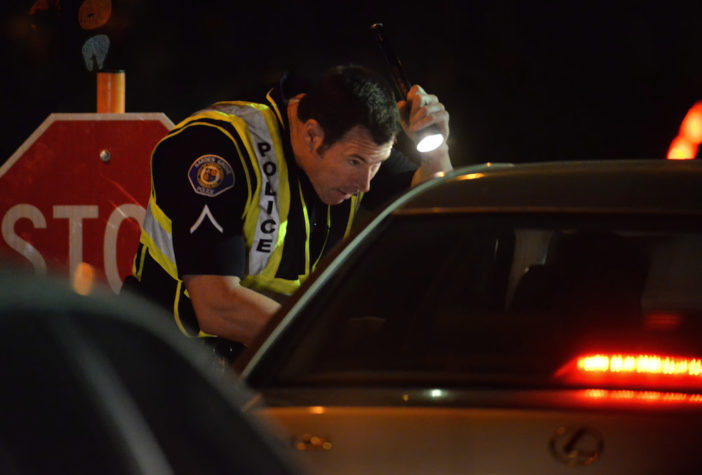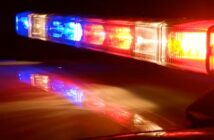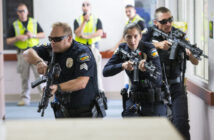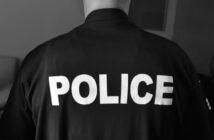If you asked me what a Drug Recognition Expert (DRE) was 10 years ago, I would have said it was an officer who dealt with street drugs and addicts. Those were two subjects that I stayed away from because they didn’t interest me.
Ask me the same question today, and I’ll have an entirely different answer. In fact, I’ll talk your head off about the subject and tell you why it is so important.
The first thing I learned at DRE School was how much we take DRE-trained officers for granted. The average cop has no idea what they do, or how much training they have been through. That includes the brand new cop all the way up to the chief of police. Unless you’ve been through the training, you have no idea how much work it is.
Say “DRE School” to most cops and they’ll run the other way. I know because I was one of them.
Cops would rather go to an active shooter call at a nuclear power plant meltdown than go to DRE School. Handling a triple fatality collision sounded much more appealing than going to DRE School.
On the first day, the instructors told us this was going to be the hardest advanced officer training class we would ever take. They weren’t lying.
The information was piled onto us with no mercy. It was like a wheel barrel pouring concrete onto a new house foundation — it went everywhere and there was no room to breathe.
My world suddenly revolved around Central Nervous System (CNS) depressants, CNS stimulants, hallucinogens, dissociative anesthetics, narcotic analgesics, inhalants, cannabis, nerves, neurotransmitters, blood pressure and heart rates.
The eyes were now the window to the soul as pupil sizes and reaction to light helped tell the tale of drug use.
By the third night, I felt overwhelmed. I thought there was no way I was going to remember all of this stuff. It was like going up a steep mountain in a snowstorm with a strong headwind pounding my face.
There were two choices: put up the white flag of surrender, or listen to “Eye of The Tiger” from Rocky 3 and gut it out.
The first week of DRE School was like watching a foreign language film with no subtitles. I know I wasn’t the only one feeling that way.
At one point, the light bulb switched on. It was dim at first, but then got brighter. The drug matrix card started to make sense after a while. It started to become more than just a bunch of boxes with words in them.
Slowly the subtitles started to appear in that foreign language film that made no sense a week before. Then, by some miracle it clicked.
What was once pure nonsense in the first week, was now like listening to the fourth movement of Beethoven’s Ninth Symphony. It all came together. If you’ve heard the symphony, then you know what I mean.
Those two weeks of DRE School turned my household upside down. Everything revolved around my class. All scheduling for my kid’s school, childcare, practices and dinner was planned around my school and studying.
Then there was the occasional DRE dream where I was evaluating someone for drug use. Friends in the class told me they also had the dreams.
At the end of the class, our main instructor asked us if we were ready to stop alienating our families and having those dreams. I laughed hard because it was so true.
So, what is this DRE class?
The DRE program had its beginnings with the LAPD in the 1970s.
Before an officer can become a DRE, they have to attend two prerequisite training classes, along with the 72-hour DRE School.
You must get 80 percent or higher to pass the class.
After passing the course, the officer must complete 12 under the influence evaluations with a DRE instructor present. The officer must be able to name which of the seven drug categories the suspect is under the influence of, and this must be confirmed through the chemical test. And finally, the officer must pass another written test after their drug evaluations have been approved.
This was not a class I signed up for. It was a class I was told I had to go it. I started out being forced to go, but I had an epiphany halfway through. I saw just how important this training was for me. I realized how important it was for every officer on the street. I also saw how important it was for public safety.
Say “DUI” and people automatically think of drinking and driving. That’s no longer the case. Marijuana and prescription drug use is on the rise like never before.
This isn’t the class we should be running away from. This should be the class officers are trying to get into.
Almost every crime we deal with revolves around drugs. The word “drug” doesn’t mean illicit drugs anymore, it also means prescription drugs.
A heroin junkie is just as dangerous behind the wheel as the soccer mom who is abusing Xanax, or a person stoned on marijuana.
Next time you’re stopped at a red light, take a look around. Chances are they’re probably next to you. Do you really want to share the road with that person?
I don’t either.
Let’s train more DREs to help stop these people before they hurt someone.
 Behind the Badge
Behind the Badge



